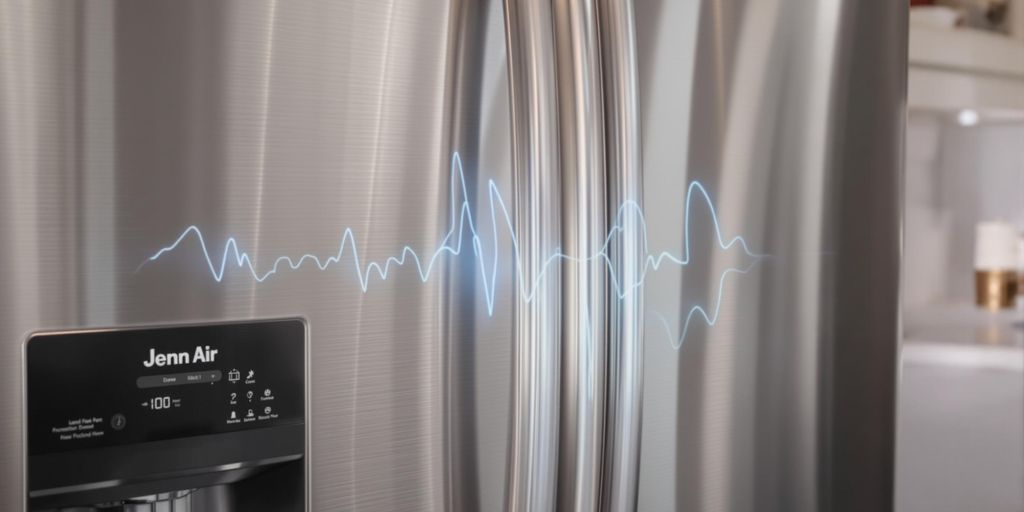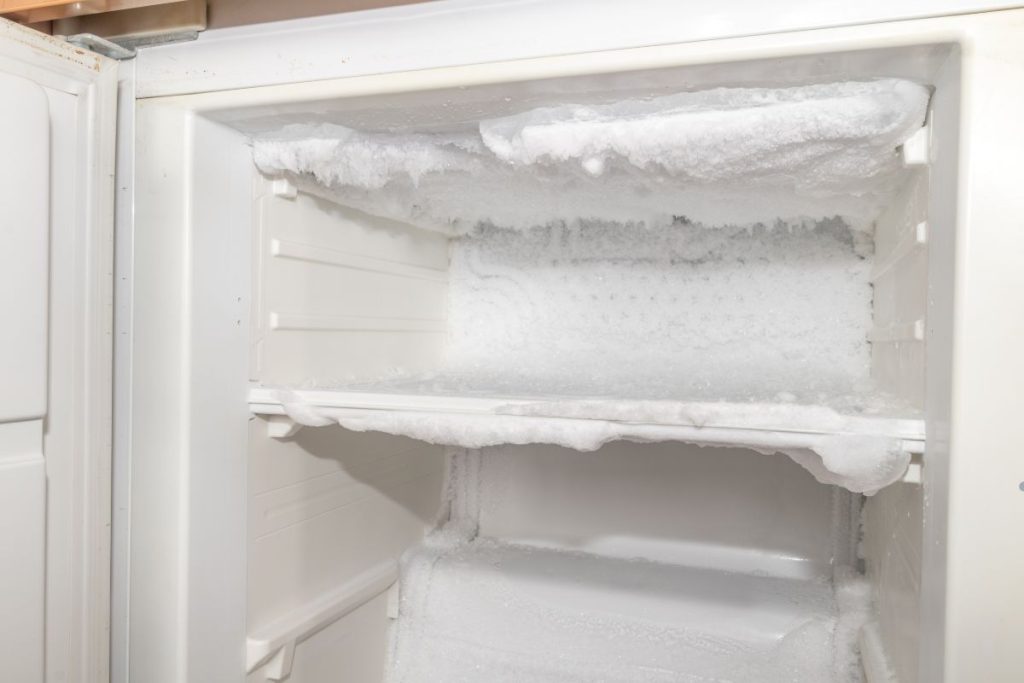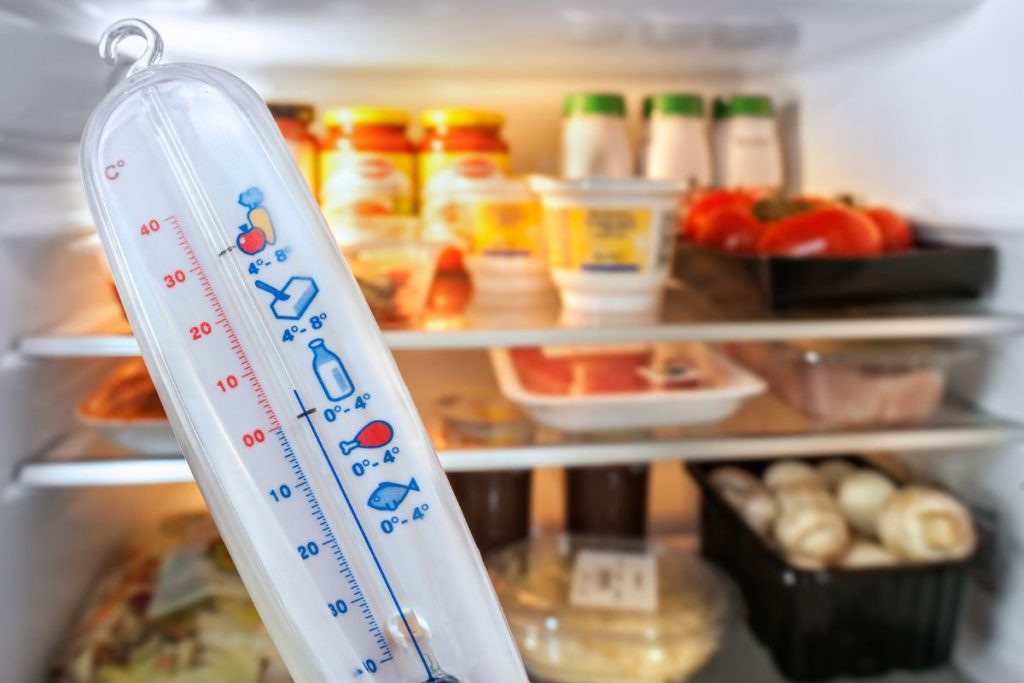
Ever been puzzled by the strange noises coming from your Jenn Air refrigerator? You’re not alone. These sounds can range from mildly annoying to downright concerning. But before you start worrying about costly repairs, it’s helpful to know what might be causing the noise and how to address it. This guide breaks down the common reasons behind those sounds and offers simple solutions to try at home.
Key Takeaways
- Jenn Air refrigerators can make various noises, like buzzing, clicking, or humming, which are often normal but sometimes signal an issue.
- The ice maker is a frequent source of noise, producing clunks, whirs, or even hissing sounds.
- Placement and leveling problems can lead to vibrations or rattling noises, which are easy to fix with adjustments.
- Fans and motors, like the condenser or evaporator fan, can wear out over time, causing grinding or squealing sounds.
- If noises persist or seem serious, it’s best to call a certified Jenn Air technician rather than attempting complex repairs yourself.
Common Types of Noises in Jenn Air Refrigerators
Buzzing Sounds from the Compressor
Buzzing is a sound you might hear when the compressor is hard at work. This noise is usually normal, especially during cooling cycles, but if it becomes too loud, it could signal an issue like dirty condenser coils or a failing compressor. Cleaning the coils or consulting a technician might help.
Clicking Noises During Operation
Clicking sounds often come from the relay switch. This part turns the compressor on and off. While occasional clicks are fine, constant clicking might mean the relay is worn out or the compressor is struggling.
Addressing this early can prevent bigger problems. Check out Our Services to find the right solution for your needs.
Humming from the Evaporator Fan
A low hum from the evaporator fan is typical when it circulates air inside the fridge. However, if the hum turns into a loud drone, the fan blades might be obstructed or the motor could be wearing out. Inspect the fan area for debris or ice buildup.
Rattling or Vibrating Components
Rattling noises can come from loose parts, like the drip pan or condenser fan. Improper leveling of the refrigerator can also cause vibrations. Tightening screws or adjusting the fridge’s position on the floor can often solve this.
How the Ice Maker Can Cause Unusual Sounds
Clunking Noises When Ice Drops
When the ice maker is doing its job and dropping ice into the bin, you might hear a clunking sound. This is totally normal, though it can be a bit startling if you’re not expecting it. The sound comes from the ice cubes hitting the plastic or metal bin. If it seems louder than usual, check to make sure the bin isn’t overfilled or misaligned.
Whirring Sounds During Ice Production
Ice makers have motors and gears that operate during the ice-making process, and these can create a whirring sound. This noise is typically harmless and just part of the machine working. However, if the sound becomes unusually loud or persistent, it could mean the motor is struggling or a gear is worn out.
Water Valve Hissing or Gurgling
Whenever the ice maker fills with water, you might hear a hissing or gurgling noise. This is the water valve opening and closing, allowing water to flow into the ice tray. If the sound is too loud, it might indicate a partially clogged water line.
Make sure to check the line for kinks or debris that could restrict water flow. If you need further assistance, don’t hesitate to Contact us for expert help.
Ice Maker Motor Clicking
The motor in the ice maker can sometimes make a clicking noise when it cycles on or off. This is generally nothing to worry about. However, if the clicking is constant or accompanied by other unusual sounds, it could signal an issue with the motor or another internal component.
Issues with the Condenser Fan and Motor
Grinding Noises from a Faulty Fan
If you hear a grinding sound coming from your refrigerator, it could mean the condenser fan is worn out or damaged. Over time, the fan blades or motor can wear down, causing this unpleasant noise. Ignoring this issue can lead to more serious problems, like overheating. It’s best to inspect the fan for signs of wear or debris and replace it if necessary.
Squealing Sounds Indicating Wear
A high-pitched squealing sound is often a sign that the motor bearings are wearing out. This is a common problem in older refrigerators. Replacing the motor is usually the only solution, as continued use could lead to a complete motor failure. If the noise persists, it might be worth consulting a professional.
Fan Blade Obstructions Causing Rattling
Sometimes, the fan blades can become obstructed by dirt, ice, or other debris. This can cause a rattling noise as the blades struggle to rotate freely. To fix this, turn off the refrigerator, remove the back panel, and carefully clean the fan blades. Be sure to check for any bent or broken blades as well.
Motor Overheating Leading to Humming
A constant humming noise could indicate that the motor is overheating. This might happen if the motor is working harder than usual due to dirt buildup or a failing component. Regular cleaning of the fan and motor area can help prevent this issue. If the humming continues, you may need to replace the motor to avoid further damage.
Taking care of your refrigerator’s condenser fan and motor is essential for keeping it running smoothly. Small issues, like unusual noises, can quickly escalate if left unchecked.
Refrigerator Placement and Leveling Problems
Vibrations from Uneven Flooring
If your refrigerator is sitting on a floor that isn’t level, you might notice it vibrating or making a low rumbling sound. This happens because the uneven surface causes the fridge to wobble slightly during operation. Even a small tilt can lead to a surprising amount of noise over time. To fix this, use a leveling tool to check the flooring and adjust the fridge’s leveling legs until it’s stable.
Noises from Improper Leveling
When a refrigerator isn’t leveled correctly, it can create all sorts of odd sounds. You might hear rattling, buzzing, or even a slight knocking noise as the compressor and internal components struggle to work efficiently. Adjusting the leveling legs is usually straightforward. Here’s a quick guide:
- Locate the leveling legs at the bottom of your fridge.
- Use a wrench or pliers to turn the legs until the fridge stands evenly.
- Double-check with a level tool to ensure it’s perfectly balanced.
Wall Contact Causing Rattling
Sometimes, the back of the fridge might be pushed too close to the wall, causing it to rattle whenever the compressor or fans kick on. Leave at least an inch of space between the refrigerator and the wall to avoid this issue. This gap also helps with proper ventilation, which can improve the fridge’s overall performance.
Cabinet Resonance Amplifying Sounds
If your refrigerator is installed in a tight cabinet space, the surrounding materials might amplify its natural hum or vibration. This resonance can make even normal operating sounds seem much louder. Placing rubber pads under the fridge’s feet or adding insulation to the cabinet can help dampen the noise.
Placement and leveling issues are some of the easiest refrigerator problems to fix, yet they’re often overlooked. Taking a few minutes to ensure your fridge is stable and properly positioned can save you from a lot of unnecessary noise—and headaches—down the road.
For more on reducing refrigerator noise, check out this buzzing noise guide to pinpoint other potential causes.
When the Defrost System Creates Noise

Popping Sounds During Defrost Cycles
If you hear popping noises, don’t panic—it’s usually normal. These sounds can happen when the fridge is in a defrost cycle. The heat from the defrost system causes the metal parts to expand and contract, leading to those popping sounds. This is often just the fridge doing its job. However, if the popping becomes unusually loud or frequent, it might be worth checking if the defrost heater or thermostat is working as it should.
Cracking Noises from Expanding Coils
Cracking noises are another common sound during defrosting. The refrigerator’s coils expand as they warm up, and this can produce sharp cracking sounds. It’s kind of like how ice cubes crack when you pour water over them. These noises are generally harmless, but if they’re super loud, it could mean the coils are under stress or there’s an issue with the defrost system.
Water Dripping into the Drain Pan
You might notice a dripping sound, which is water melting off the evaporator coils and landing in the drain pan. This water eventually evaporates, but while it’s dripping, it might sound a bit like a small leak. If the drain pan is loose or not sitting right, the dripping could make more noise than usual. A quick check to ensure the pan is secure can often solve this.
Hissing from Steam Release
Sometimes, you’ll hear a hissing noise during the defrost cycle. This happens when the heat from the defrost system turns ice into steam, which then escapes. While it might sound odd, it’s a normal part of the process. If the hissing seems excessive, it could mean the defrost heater is staying on too long or working harder than it should, which you might want to have inspected.
The defrost system is crucial for keeping your fridge running smoothly, but it can also be a source of strange noises. Knowing what’s normal and what’s not can save you from unnecessary worry.
Diagnosing and Fixing Door Seal Issues
Whistling Sounds from Air Leaks
If you hear a faint whistling noise coming from your Jenn Air refrigerator, it’s likely due to air escaping through gaps in the door seal. This can lead to temperature inconsistencies and higher energy bills. Check for cracks or worn-out sections of the seal by running your hand along the edges while the door is closed. If you feel a draft, it’s time to replace the seal.
Squeaking When Opening or Closing
A squeaky refrigerator door might not seem like a big deal, but it’s definitely annoying. This usually happens when the rubber seal gets dirty or dries out. To fix this, clean the seal with warm, soapy water and dry it thoroughly. If the sound persists, apply a thin layer of petroleum jelly to the seal to lubricate it.
Loose Seals Causing Vibrations
Loose seals can sometimes vibrate when the fridge is running, creating a buzzing or rattling noise. Poor adhesion between the seal and the door frame is often the culprit. Inspect the seal for any detachment or gaps, and press it back into place if possible. If the seal won’t stay put, you might need to replace it entirely.
Gaps Allowing External Noise In
Sometimes, the issue isn’t just the noise your fridge makes—it’s the outside noise getting in. Gaps in the door seal can let in external sounds, making your refrigerator seem noisier than it actually is. Carefully inspect the seal for tears or wear, and replace it if needed. A tight seal not only keeps the noise out but also helps your fridge run more efficiently.
A worn or damaged door seal might seem like a small issue, but it can lead to bigger problems like inefficient cooling and increased energy use. Taking the time to inspect and maintain it can save you money and hassle in the long run.
If your refrigerator is still noisy after addressing the door seals, it could indicate a more serious issue, such as a faulty control board. A beeping noise is one example where professional help might be needed.
How Temperature Fluctuations Contribute to Noise

Ticking Sounds from Expanding Materials
Ever notice a soft ticking sound coming from your Jenn Air refrigerator? This is often caused by the materials inside the fridge, like plastic or metal, expanding or contracting as the temperature shifts. It’s a normal occurrence, but if the ticking gets unusually loud, it might be worth checking for loose panels or damaged parts.
Gurgling from Refrigerant Flow
The refrigerant flowing through the cooling system can create a low gurgling or bubbling sound. This is a typical noise that happens as the refrigerant transitions between liquid and gas states to regulate the fridge’s temperature. If the gurgling turns into loud splashing or hissing, it could indicate a refrigerant leak, which would need professional attention.
Popping Noises During Cooling Cycles
Popping sounds can occur when the cooling system kicks in or shuts off. These noises often come from the coils or other internal components adjusting to sudden temperature changes. While this is mostly harmless, persistent or very loud popping could signal an issue with the defrost system or the coils themselves. Popping sounds in fridges are usually harmless but should be monitored for changes.
Humming from Increased Compressor Activity
When the compressor works harder to maintain the set temperature—like during a hot day or after the fridge door has been open for a while—you may hear a steady humming. This sound is generally nothing to worry about unless it becomes excessively loud or irregular, which might indicate a problem with the compressor or its motor.
Temperature changes inside your fridge can cause a variety of noises, most of which are perfectly normal. However, keeping an ear out for changes in volume or frequency can help you catch potential issues early.
If you notice unusual sounds persisting, call us for expert assistance and ensure your fridge stays in top condition.
When to Call a Professional for Persistent Noises
Identifying Signs of Serious Problems
Sometimes, the noises your Jenn Air refrigerator makes aren’t just annoying—they might be a sign of something that needs immediate attention. If a quiet hum turns into a disruptive buzz or rattle, this could point to a failing motor, fan, or compressor. Other warning signs include grinding sounds that don’t go away or loud clunking noises that seem to worsen over time. Don’t ignore these; they often signal major issues that could lead to more costly repairs if left unaddressed.
Understanding Warranty Coverage
Before you panic about repair costs, take a moment to check your refrigerator’s warranty. Many Jenn Air models come with coverage for specific parts or services. If your fridge is still under warranty, you might be able to save on repair costs. Keep your purchase receipt handy, and review the warranty terms to see if the issue qualifies. A quick call to the manufacturer or retailer can clarify what’s covered and what isn’t.
Avoiding DIY Repairs for Complex Issues
Sure, fixing things yourself can be tempting, especially if you’re handy around the house. But when it comes to a refrigerator, tackling certain repairs on your own can make things worse. Refrigerators have complex systems involving refrigerant lines, electrical components, and precision parts. Messing with these without the right tools or knowledge can void your warranty, make the problem worse, or even be unsafe. For anything beyond basic troubleshooting, it’s best to leave it to the pros.
Finding a Certified Jenn Air Technician
When it’s time to call in an expert, make sure you’re reaching out to someone who knows Jenn Air appliances inside and out. Certified technicians have the training and experience to diagnose and fix issues specific to your refrigerator model. They’ll also have access to genuine parts, ensuring the repair lasts. Finding a qualified professional might feel like a hassle, but it’s worth it for the peace of mind and the extended life of your appliance.
Persistent noises aren’t just an annoyance—they’re often your refrigerator’s way of telling you something’s wrong. Addressing these issues early can save you from bigger headaches down the road.
If the noise from your fridge has shifted from a quiet hum to a disruptive buzz or rattle, it’s time to consider repairs. Acting sooner rather than later can prevent further damage and keep your fridge running smoothly.
Wrapping It Up
So, there you have it. If your Jenn Air fridge is making weird noises, it’s probably one of the common issues we talked about. It could be something simple like the fridge not being level or a fan that needs cleaning. Or maybe it’s a part that’s wearing out and needs replacing. Either way, figuring out the cause doesn’t have to be a headache. Start with the easy stuff and go from there. And if you’re stuck, don’t hesitate to call in a pro. A quiet, smoothly running fridge is worth it, right? Contact us if you need expert help!
Frequently Asked Questions
Why does my Jenn Air refrigerator make a buzzing noise?
A buzzing sound often comes from the compressor. This is normal during operation, but if it’s unusually loud, it might need cleaning or servicing.
What causes clicking sounds in my refrigerator?
Clicking noises can happen when the fridge’s defrost timer or temperature control switch operates. It’s usually not a problem unless the sound is constant.
Why do I hear rattling or vibrating from my refrigerator?
Rattling might come from loose parts, items inside the fridge, or if the fridge isn’t level on the floor. Checking these can often fix the issue.
Is it normal for the ice maker to make noise?
Yes, sounds like clunking when ice drops or whirring during ice production are common. However, loud or strange noises might mean something needs adjustment.
What should I do if my refrigerator makes popping or cracking sounds?
These sounds often occur during cooling or defrost cycles as materials expand or contract. It’s usually normal, but if it’s very loud, you might want to have it checked.
When should I call a professional for refrigerator noise?
If the noise is persistent, very loud, or you notice other problems like poor cooling, it’s best to contact a certified technician to avoid further damage. If the issue continues or worsens, call us to get professional assistance and prevent any potential damage.
